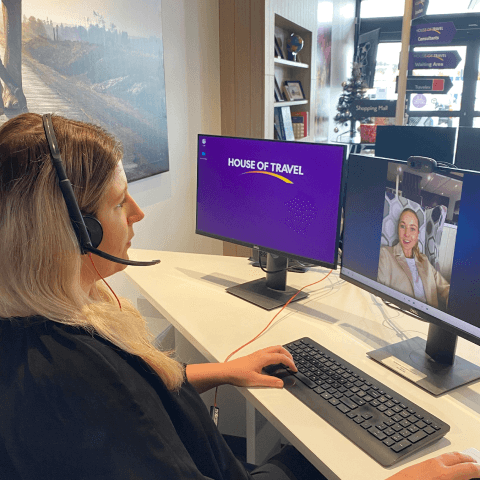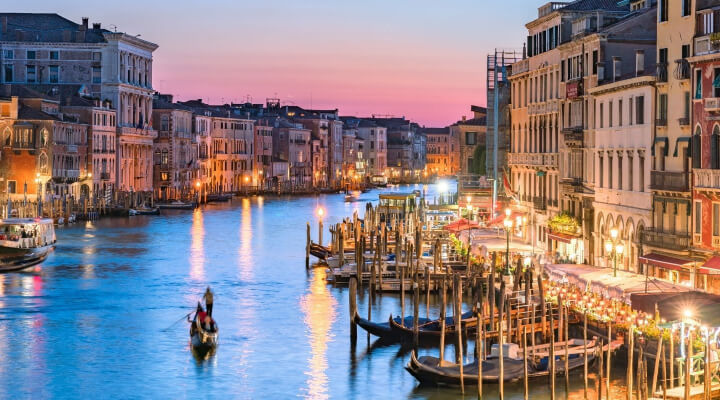France know before you go

Planning a trip to France? Before you pack your bags and grab your passport, here’s what you need to know to make the most of your French adventure. From charming villages and iconic landmarks to delicious cuisine and unique customs, France is full of surprises that can enhance your travel experience.
Whether you’re dreaming of exploring the vineyards of Bordeaux, wandering the streets of Paris, or relaxing on the French Riviera, this guide is the lowdown on all things French. This is your definitive guide to holidaying in France.

An illustrious nation by any standards, France fosters a prestigious name and the charisma to match. A patchwork of vineyards, villages, slick cities and a rich rural tapestry, days can be as diverse as laid-back beach visits followed by upmarket Michelin meals. There’s really no right or wrong way to see France, just as long as you take regular stops for French bread, pate and a crisp glass of white (in other words do as the French do). Bon voyage, you lucky little so-and-so, you.
1. How long can I stay without a visa?
New Zealand citizen holders with a valid New Zealand passport are not required to obtain a visa to enter France, as long as you stay no more than 90 days.
2. What’s the local currency?
Euro.
3. Do I need to tip?
By law, French restaurants are required to include a 15% service charge in the bill. This can be clearly seen as “service compris” (tip included) on your receipt. However, the price shown on the menu, in general, also includes the 15%, so there shouldn’t be any hidden extras when you come to pay. If you’ve been particularly happy with the service, round the bill up to the nearest Euro.
For hotel porters, two to three euros is ample, and in taxis, drivers will expect a 10-15% gratuity on top of your fare.

4. Transport to and from Paris CDG airport
Unless you are in a rush or arrive in the early hours, avoid expensive taxis and jump on the RER B: The suburban train line which runs straight out of Charles de Gaulle International Airport and into the very heart of Paris.
Quick facts:
- Trains run every 10 to 15 minutes.
- Average journey time between Paris-Châtelet and CDG airport is 35-40 minutes
- Arrival Stations: Gare du Nord, Châtelet les Halles, St Michel/Nôtre Dame, Luxembourg, Port Royal, Denfert-Rochereau, Cité Universitaire.
- We guarantee after a 24+ hour flight from NZ, you won't want to deal with a transfer via public transport. Ask your HOT consultant about booking a transfer before you even leave NZ.
5. Getting around
The SNCF train system is globally regarded as providing a world-class service. If you’re looking for a fast, efficient, regular and extremely reliable means to get around France, you can’t go wrong with the train. Albeit not cheap, book in advance for the best deals. In the height of summer, you’re unlikely to be able to purchase tickets on the day you want to travel, especially on popular inter-city routes, as they will probably be fully booked. Always pre-purchase tickets at least three days in advance.

6. Weather: What can you expect when you go?
Weather wise, there is so much variety in France. Mild winters and warm summers are common across the country but the northern regions can also get bitterly cold in the middle of winter. The Mediterranean coast enjoys cool (but not cold) winters and hot summers whereas the southwest gets plenty of rain after the summer. Cool to cold winters and hot summers are common along the German border (Alsace), and if your tickle the Rhône Valley, there is an occasional strong, cold, dry wind. Of course, winters in the Alps, Pyrenees and Auvergne are served with a flurry (make that a few metres) of snow. Whenever you visit - as a general rule - travel south for increased sunshine and higher temperatures.
7. Top 10 phrases
- Oui – Yes
- Non – No
- S'il vous plaît – Please
- Merci – Thank you
- Je ne parle pas français – I don't speak French
- Parlez-vous anglais? – Do you speak English?
- Bonjour – Hello
- Au revoir – Goodbye
- Excusez-moi – Excuse me
- Combien ça coûte? - How much does it cost?
8. Rules and customs
Having a little bit of French in your arsenal will do wonders in France. Locals always respond positively to foreigners who speak their language – even if you’re just seen as trying to make an effort. If you’re in Paris and using the Metro, or you’re walking through any other area with busy pathways and escalators, walk on the left and stand on the right.
If you’re embarking on a self-drive, failing to offer assistance to 'a person in danger' is illegal. Therefore, if you come across a car accident and don’t stop, fail to report it to the emergency services, or ignore appeals for help, you could be charged. Penalties include suspended prison sentences and fines.



9. Where to have fun
1. Champagne anyone? In Epernay the Avenue de Champagne is bursting with wine tours and tasting, while Hautvillers, 5km north, presents the hometown and resting place of a 17th century monk - by the name of Dom Pérignon.
2. Discover the ever-popular Route de Vins in Alsace, a 170km stretch weaving through the Vosges foothills; passing 100 sleepy villages and if you’re in luck, a local wine festival too.
3. Burgundy is the region of cheese and Chablis, Dijon mustard and boeuf bourguignon. Take a canal boat along the Yonne’s waterways or cycle the Côte d'Or vineyards.
4. See and be seen at the beach – Nice, Saint-Tropez or Cannes - the seduction of the Mediterranean is rife.
5. Lunch in a country auberge or shop the biggest names in France, from Chanel to YSL. Gabarres (little barges that once carried wine barrels) are perfect for cruising up-stream in the Dordogne.
6. Bordeaux, the capital of unashamed over-indulgence, is a must-do for its 57 wine labels, UNESCO heritage and world-class artwork.
7. In Toulouse, descend on the main square, Place du Capitole, just before sunset and watch the fiery red colours sink into the city. By day visit the 11th Century Basilica St-Sernin, arguably France’s grandest Romanesque church and the lavish mansions that flank the wide boulevards of the Old Quarter.
10. What to do in an emergency
France is a low-crime country, but there is pick-pocketing and purse-snatching. Call 112 to reach emergency services - medical, fire and police. There are two law enforcement forces in France, the National Police (Police Nationale) and the Gendarmerie which has a military component. Don’t be surprised to see both forces heavily armed, often with semi-machine guns.
We recommend safely and securely storing three important travel documents (your passport, credit card and driver's license) on your phone. Use an app such as Traveler ID which will store a series of documents in one place. Of course, you might lose your phone, so also store them in the Cloud, or your saved emails.
11. Mobile usage – to roam or not to roam?
If your phone is unlocked you’ll be able to purchase a French SIM card. Orange is one of the biggest providers of SIM cards. No-contract plans start from approximately €39 ($60) and will include local calls, texts and CAPPED data.

12. HOT’s top 5 French eats
Moules and frites. Or any variant of the south west’s seafood and shellfish. Delivered by the crashing Atlantic waves.
A liquid lunch. Champagne in Champagne; Cognac in Cognac; one of 57 brands of wine in Bordeaux. Add some crackers, pate and a fresh French baguette and voila, enjoy a slice of the good life.
Cassoulet. It might not look pretty, but never judge a book by its cover and never judge food by its state on the plate. Originating in the south of France and comprising meat, pork skin and white beans, it’s definitely ugly but it’s always delicious.
Croissants. But of course! Days start with café au lait in street-lined cafés; people watching and picking away at a warm croissant. A huge bowl of hot chocolate is not uncommon for breakfast either, the children especially like it. And no, we don't know how the French aren't obese either.
Bouillabaisse. A traditional fish stew from Marseille. Bouillabaisse originates from olden times, when fishermen made a hearty meal from the bony rockfish they were unable to sell. For this reason, eat with care; an authentic Bouillabaisse will still be saturated with bones.

13. France for kids
You can make almost any French activity as fun for children as it is for the adults. Take a ghost tour/walk in Paris or navigate the rural vineyards with a bike ride. If you’re critters are brave critters, cycle on a country road and wait for the trucks carrying hay bales to pass – nothing more fun than a hay storm!
In summer, many of the French farmers craft their fields into crazy mazes. A maize maze if you will. The French are also particularly good at designing a really great park, with all sorts of swings, slides and monkey bars.
If you’re not close to the coast, many municipals have manmade lakes with small slivers of sand and swimming pontoons. And you might not get the kids eating duck liver pate by lunchtime, but we bet they won’t mind a picnic with a pastry from the patisserie. Look out for the savoury options covered in shredded emmental cheese – the cheese makes the slice look excessively hairy and kids love it.
European Heritage Days
These are annual national events, currently set up by more than fifty countries whereby the public are permitted to visit buildings and other historical places of interest which are not usually open to the public, or museums whose access then becomes free, or reduced in price.
These heritage days are launched every year on the third weekend of September. Also known as Doors Open Days and Open Doors Days. For more information click here.
14. What adapter do I need?
In France, mains voltage is 220 volts AC. All sockets take small, round two-pin plugs.
Now that you're all set with your France travel insights, connect with a Europe specialist and start planning today!
More Europe travel blogs
Best. Holidays. Ever!
Start here
Let us help you find the perfect holiday or deal. Here’s how to get in touch...

Want the inside word on all things travel?
Never miss a deal again. Sign up for our emails and get exclusive flight offers, travel tips, and be the first to know about special promotions.
By signing up, you have read or have an opportunity to read the Privacy Policy, and you agree to the provisions of the Privacy Policy.

Thanks for signing up, we’ll be in touch soon!
Hold on a sec, adventurer! We didn't quite catch your email. Sign up again to unlock your travel dreams!


































